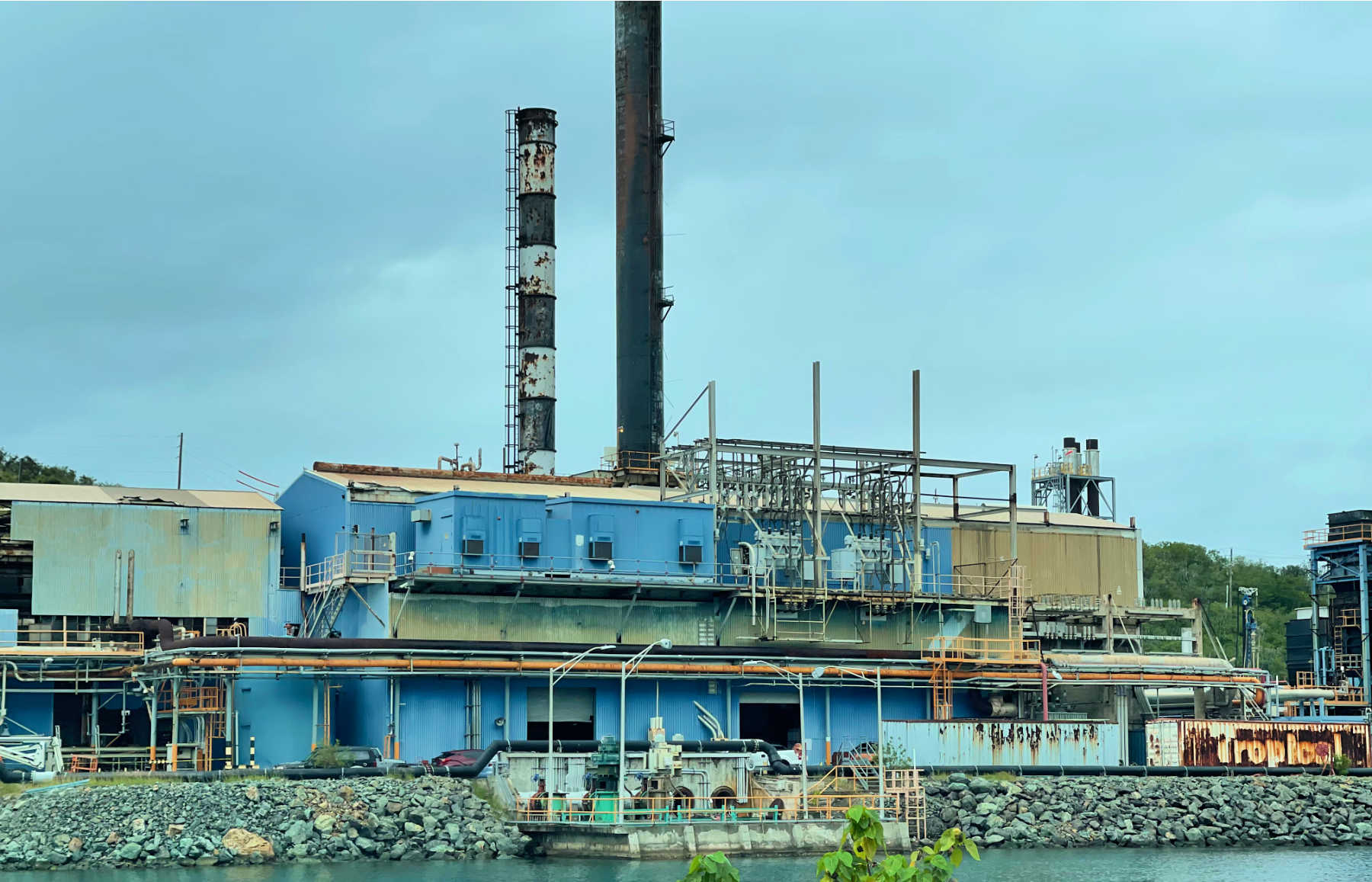WAPA
WAPA Confronts Significant 37% Water Loss, Exceeding Standard Norms

During a recent presentation to the Public Services Commission, Don Gregoire, the director for water distribution at the Water and Power Authority (WAPA) on St. Croix, disclosed a concerning issue: WAPA is losing a staggering 37 percent of its produced water. This figure starkly surpasses the accepted loss rate of 14.41 percent, and encompasses both actual and billing-related losses.
Jim Madden, a staff member at the PSC, conveyed insights from an analysis initiated by WAPA and finalized in 2015. This investigation, conducted by an external consultant, concluded that WAPA’s water losses were indeed at 37 percent. However, follow-up strategies to reduce these losses to the standard 14 percent were not implemented by the authority.
Madden expressed surprise at this revelation, especially since previous data suggested that St. Thomas was maintaining water line losses at a manageable 15-18 percent range. He emphasized the significance of the gap analysis, which was intended to bridge the disparity between the current losses and the target percentage.
The PSC is currently awaiting formal confirmation regarding the proposed overhaul of St. Croix’s entire water distribution system. Madden advised the commission to request detailed plans and timelines from WAPA to ensure the feasibility of this massive undertaking. He underscored the need for new transmission and distribution pipes, which could substantially improve the water quality issues on St. Croix.
Madden provided a stark comparison to illustrate the extent of the problem: for every gallon of water sold, WAPA is effectively producing two gallons, considering the losses. He noted the financial implications, as all produced water, irrespective of whether it reaches consumers, incurs costs for chemicals, pumping, and electricity.
Addressing the issue’s background, Madden suggested that WAPA’s pressing financial struggles, including cash-flow and liquidity challenges, have overshadowed the water loss issue. However, he acknowledged the planned leak detection survey, funded by the Department of Planning and Natural Resources, as a positive step towards identifying critical loss areas.
Don Gregoire, confirming a portion of the losses as billing errors, highlighted the ongoing installation of smart meters, which is expected to enhance billing accuracy. This project, currently about 20 percent complete, promises to play a crucial role in rectifying the billing aspect of WAPA’s water losses.
WAPA
Vitema Offices on St. Thomas Closed Due to WAPA Potable Water Disruption

U.S. Virgin Islands – The Virgin Islands Territorial Emergency Management Agency (VITEMA) Director is advising the public that the St. Thomas offices are closed effective immediately due to a WAPA potable water disruption.
According to WAPA’s statement, the problem is expected to be fixed later this evening and, as such, VITEMA’s St. Thomas office will reopen as usual tomorrow, Wednesday, May 15, 2024 for normal operations, 8am-5pm.
The St. Thomas 911 operations remain functioning as usual.
WAPA
Loud Boom at Randolph Harley Power Plant Leads to Safety Precautions

A startling boom at the Randolph Harley Power Plant in St. Thomas prompted an evacuation of the V.I. Water and Power Authority (WAPA) personnel on Thursday. Contrary to initial fears of an explosion, the noise was identified as a safety feature activation—a rupture disk—intended to prevent damage to critical systems, according to WAPA spokesperson Shanell Petersen.
This safety mechanism, which triggered the evacuation, responds automatically when it detects potential threats to the plant’s integrity. The activation caused significant concern, initially described as an explosion by a WAPA official. In response, the V.I. Fire and Emergency Services dispatched teams, and the Virgin Islands Police Department secured the plant’s perimeter.
Petersen explained the evacuation was a necessary precaution due to the intensity of the noise. She clarified that such measures ensure the safety of the staff, highlighting that the rupture disk’s role is a proactive safety response.
The event occurs amid ongoing challenges for WAPA in maintaining consistent power in the St. Thomas-St. John District. Following a district-wide outage on Wednesday, the region experienced similar power interruptions again today. Petersen noted that the rupture disk incident does not directly relate to the generation of power but is a separate safety measure.
The power issues have had widespread repercussions. The V.I. Department of Education had to cancel classes in the district for the second consecutive day. “Due to the ongoing power outage affecting the St. Thomas-St. John District, all schools within the district will remain closed today, Thursday, May 9, 2024,” announced the Department. “We apologize for any inconvenience and ask the public to follow official updates for further information on school operations.”
Additionally, the V.I. Superior Court announced closures due to a water service interruption, and the V.I. Economic Development Authority reported disruptions to its telephone services.
In related community impacts, the Lockhart K-8 Music Department has postponed its Spring Concert scheduled for today due to the unstable power supply, affecting not only educational institutions but also community events across the island.
WAPA
PSC Commissioner Calls for Hiring of Hearing Examiner Amid Concerns Over Water Safety in St. Croix

During a recent meeting with representatives from the Water and Power Authority (WAPA), Public Services Commission (PSC) member David Hughes expressed significant concerns about the current state of water testing in St. Croix, following last year’s alarming discovery of elevated levels of lead and copper. Hughes pressed for immediate action, questioning the delay in hiring a hearing examiner—a role outlined on the PSC’s website as crucial for overseeing utility compliance with regulations.
Hughes emphasized that the role of the hearing examiner is to work closely with utilities to ensure they meet the commission’s standards, particularly in regular testing to safeguard public health. “The PSC should be actively ensuring that WAPA maintains a consistent testing program that we can trust on behalf of consumers,” he stated.
The dialogue grew tense when Hughes criticized the commission’s efforts, responding to PSC Executive Director Sandra Setorie’s assurances that progress was being made with, “We as a Commission are not fulfilling our obligations.” He pointed to WAPA’s reactive measures—conducting 65 water tests in response to complaints about water discoloration—as insufficient and indicative of a need for a robust, ongoing testing program.
WAPA’s Director of Water Distribution for St. Croix, Don Gregoire, defended their practices, stating that the water is tested daily in their own laboratory, following EPA guidelines which now mandate biannual testing. However, Hughes countered that without full transparency and understanding of the testing procedures, the commission could not confidently endorse the program.
The urgency for better oversight was further highlighted by a lawsuit alleging serious deficiencies at the St. Croix laboratory, including outdated certifications and improper sample collection. These revelations support Hughes’s argument for enhanced oversight to ensure WAPA’s accountability and transparency.
Hughes also pointed out a broader issue of information deficit and lack of transparency from WAPA, underscoring the PSC’s duty to keep the public informed. “We’re not doing our job in regulatory oversight,” he lamented.
In a positive note, WAPA Chief Operating Officer for Water, Noel Hodge, announced a substantial FEMA grant aimed at overhauling St. Croix’s water infrastructure over the next two decades, with a detailed capital improvement plan underway and initial construction expected to start within three years.
Hughes’s call for the appointment of a hearing examiner underscores a critical need for PSC to enhance its regulatory role and ensure that such public health emergencies do not recur, reflecting a commitment to uphold safety and transparency in public utilities.
-

 Education9 months ago
Education9 months agoCTE Board Enthusiastic About New Curriculum Standards, Yet Anxious Over Apprenticeship Support
-

 Development3 weeks ago
Development3 weeks agoCosts Surge as Donoe Estates Housing Project Resumes with New Contractor
-

 Crime9 months ago
Crime9 months agoRegistered Sex Offender Detained for Illegal Firearm Possession During Annual Surveillance Drive
-

 Crime7 months ago
Crime7 months agoSt. John’s Westin Resort Scene of Armed Robbery, Prompting Heightened Police Vigilance
-

 Crime9 months ago
Crime9 months agoUnraveling the Home Invasion in St. John: Suspect Held on $100,000 Bail
-

 Crime9 months ago
Crime9 months agoU.S. Virgin Islands Alert: Megan Smith Goes Missing; Authorities Request Community Aid
-

 Videos2 years ago
Videos2 years ago2022 Gubernatorial Election: Voters Speak Out
-

 Videos2 years ago
Videos2 years agoGubernatorial Teams Celebrate St. Croix’s Bull & Bread Day





